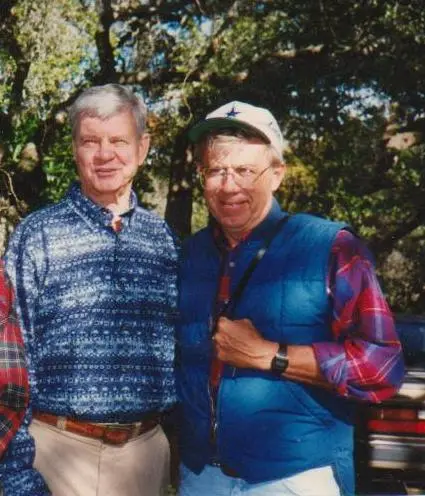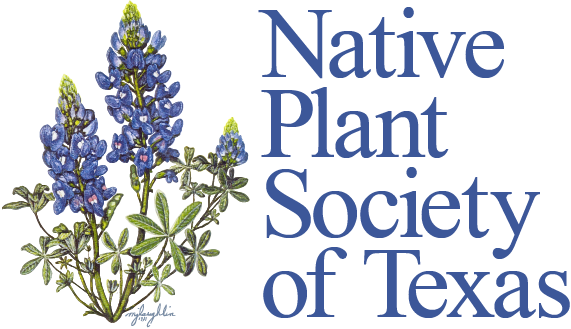By Bill Lindemann
This article is dedicated to the memory of a long time friend, mentor and fellow naturalist.

In 1965 I worked for what was then Humble Oil and Refining Company, now Exxon, and was transferred from Wichita Falls to Tyler. I bought my first home in a pine forest in East Texas, which happened to be next door to the geologist who occupied the office next to me at work. This fellow seemed to have endless energy and curiosity about all things related to nature – from geology to birds to native plants, to name a few. His curiosity and love of nature was similar to mine, but my interest was still in a latent stage. Iwas engaged in other priorities, such as starting a family, a career and adjusting the new town in a part of the state much different from where I had lived before.
We lived on a beautiful lot studded with huge pines and hardwoods that sloped down to a flowing creek. My neighbor had bird feeders in his yard which were always a lot of flutter with colorful birds going to and from his feeders. He suggested that I also set up some feeders and begin to learn the names of my visitors. We went on field trips with other people in the area who were also interested in birds. These “bird watchers,” the term used to describe these bird enthusiasts, were really nice people and seemed extremely knowledgeable about all the birds we saw.
I bought the book, A Field Guide to the Birds of Texas, by Roger Tory Peterson and began to sort out the names of my backyard visitors, keeping a list of the species I saw. Little did I know that this curiosity would turn into a passion and a life-long avocation. Also, I did not know that my neighbor, Bill Ward, would become such a special friend. He, his wife Kathy, and three children became part of my family.
Within a year of our arrival in Tyler, Bill decided that teaching was his life’s calling and moved to Houston to attend Rice University where he attained his PhD in carbonate sedimentology. He went to the University of New Orleans where he touched the lives of many students over the decades, before retiring as Professor Emeritus in 1995. Bill, a native of San Antonio, retired to Boerne about the same time I retired from Exxon and moved to Fredericksburg. We were once again neighbors, this time in the Texas Hill Country.
The relationship that germinated in Tyler many years ago developed into an extraordinary time together. He persuaded me into working at Cibolo Nature Center in Boerne and later I did the same to him regarding our nature center in Fredericksburg. Geology was our common bond, but nature is where we devoted most of our time. Bill and I worked together to promote the Native Plant Society of Texas. Native plants moved front and center in Bill’s life and he began writing a biweekly column in the Boerne Star newspaper. An endangered plant, the big red sage, received much of his effort as he worked to relocate colonies and protect them.
The great flood of 2007 opened and expanded a canyon below Canyon Lake dam; a place Bill would spend a great amount of time mapping the newly exposed limestone outcrops. Bill led many field trips there, teaching visitors about the many splendors of the geological world. When not in the canyon, he found time to teach master naturalist courses, lead field trips on a variety of subjects, and fill his insatiable quest for knowledge of nature.
I want to share the last chapter in our mutually challenging relationship together. Bill has helped me on a number of Christmas Bird Counts over the years. Our first count this year was in West Kerr County on December 30. We spent the night before on Kerr Wildlife Management Area to get the jump on our activities on count day. We had a marvelous time finding fifty species of birds including Bald Eagles, Brown Creeper and Golden-crowned Kinglets. Bill wanted to find a Golden Eagle, but we were not successful.
A few days later, Bill was taken from us – as unexpected as the clap of thunder from an unexpected storm. Bill suffered the first of two strokes. He seemed to be on a path to recovery, but a second stroke abruptly ended his wonderful life. Bill was a very competitive person and would give me a very hard time about seeing a bird he had not seen – calling me “lucky” to which I countered that it was talent, not luck. In retrospect, I have to agree with his assertion. I was indeed the lucky one to have known and enjoyed a friendship and love with him that lasted a lifetime. I like to think he is now soaring with the Golden Eagles we did not find on count day.
